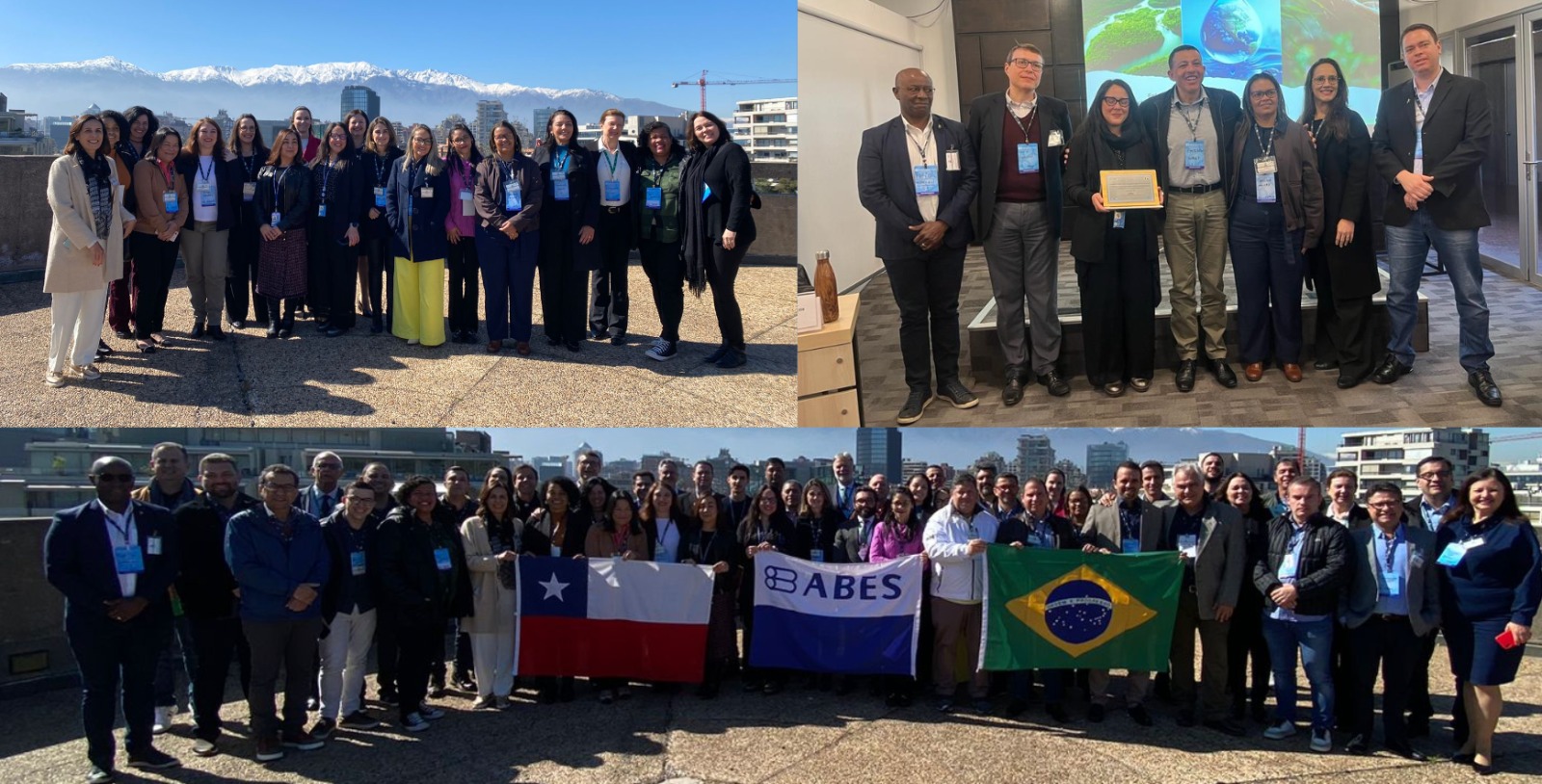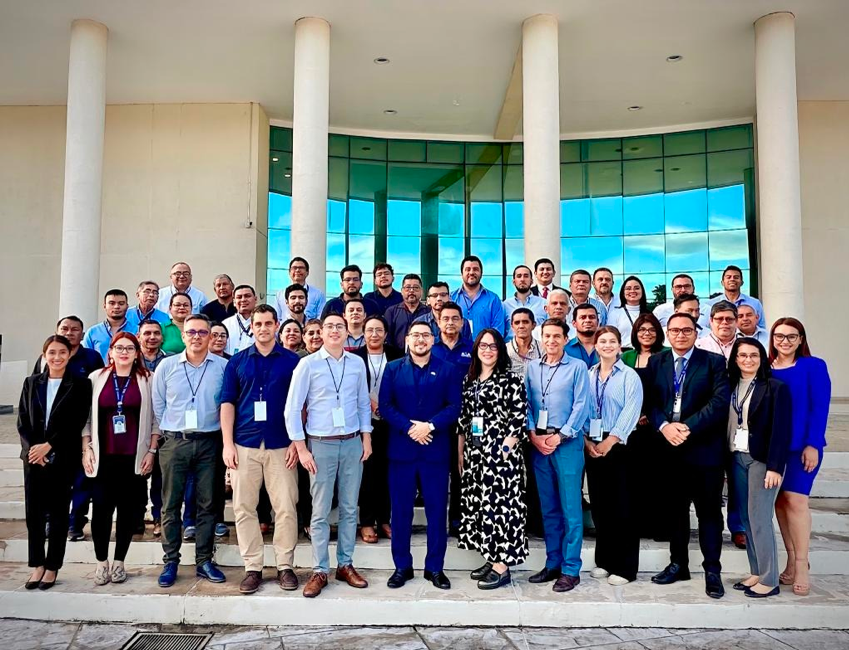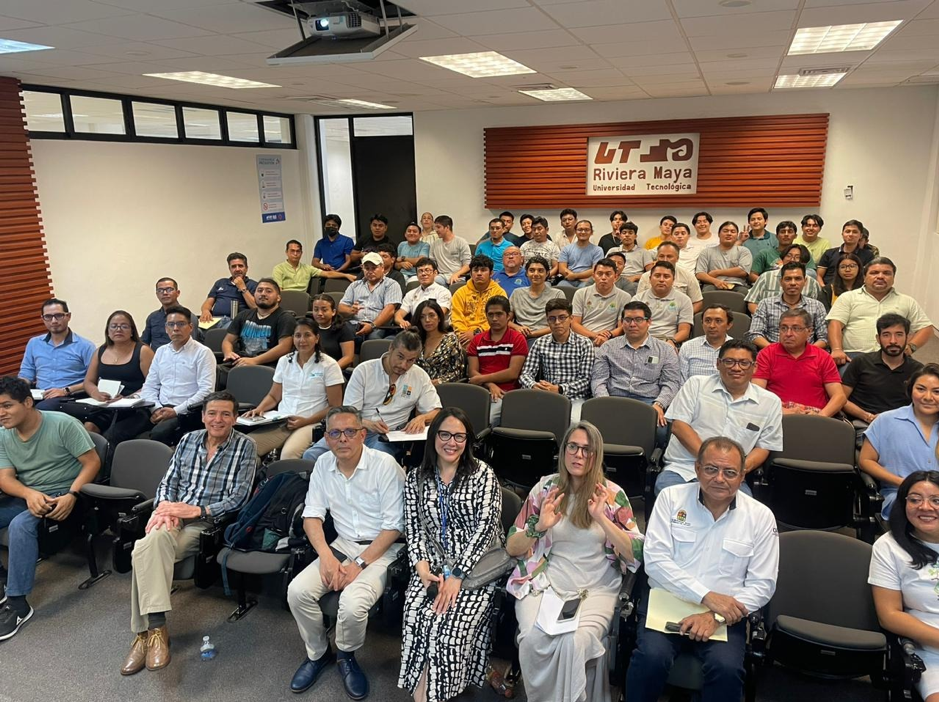CEPAL Seminar: Towards a Sustainable and Inclusive Water Transition as the Conclusion of the Brazilian Association of Sanitary and Environmental Engineering (ABES) Mission with the Winners of the National Sanitation Quality Award (PNQS)
Work area(s)
Topic(s)
Teaser
The event took place at CEPAL's premises on September 15th and was broadcast in a hybrid format. The event was organized by CEPAL and ABES. Fifty representatives from Brazilian sanitation companies, winners of the only National Sanitation Quality Award (PNQS) in the world, were present, including COPASA, AGUAS CUIABÁ, IGUÁ MT, EMBASA, DESO, AGUAS BRASIL, CORSAN, SABESP, INECOM, and WETLAND. Each company was awarded in one of the following categories: 1) Innovation in Environmental Sanitation Management; 2) Operational Efficiency in Environmental Sanitation; 3) Supplier Quality Seal; 4) Environmental Sanitation Asset Management Award. During the event, Dr. Silvia Saravia Matus, Economic Affairs Officer in charge of Water Affairs at CEPAL, addressed the importance of a sustainable and inclusive water transition in the region and highlighted the opportunities offered by the circular economy in the sanitation sector. Additionally, recent missions conducted by CEPAL in El Salvador and Mexico were discussed, emphasizing the potential for the conversion of Wastewater Treatment Plants (WWTPs) into circular plants (biofactories) and the positive impact on reducing operational costs through sustainable technologies. Finally, ABES presented a recognition plaque to Dr. Silvia Saravia Matus for CEPAL's significant contributions and leadership at the regional level.
Event information

Date
15 Sep 2023, 07:00 - 10:00Event type
The event began with a detailed presentation by Dr. Silvia Saravia Matus, an Economic Affairs Officer in charge of Water Affairs at CEPAL. This presentation focused on the current water status of the region, highlighting not only current data but also the vision for the future and the challenges the region faces in achieving a comprehensive and sustainable water transition.
The core of the discussion centered on how the circular economy can be a vital tool for the sanitation sector, especially in medium to small-scale WWTPs. This was presented by CEPAL experts specializing in wastewater. Recent missions to El Salvador and Mexico served as practical examples of how these principles could be implemented. It was emphasized that by adopting circular economy practices, WWTPs can not only become more efficient but also more sustainable. An important revelation was that a significant portion of the operational costs of WWTPs, particularly electricity consumption, could be significantly reduced through methane capture and utilization.
The missions to these two countries served as case studies on how medium to small-sized WWTPs can also be attractive for investment. These experiences demonstrated that it is not only possible but also profitable to invest in sustainable technologies in the sanitation sector.
The workshop concluded with an enriching Q&A session, where attendees had the opportunity to discuss the topics presented, ask questions, and share their own experiences. This interaction allowed for a deeper understanding of the issues discussed and provided a clearer vision of the next steps for the region in its pursuit of a sustainable water transition. With events like this, the region continues to strengthen its commitment to sustainability and inclusion, seeking innovative solutions that benefit both the environment and communities.
To view more event images, click here.
You can find the event recording here.
Related content

ECLAC: Promoting Circular Economy in the Potable Water and Sanitation Sector (El Salvador)
ECLAC conducted a comprehensive mission in San Salvador, El Salvador, on September 5th and 6th, 2023. This mission focused on promoting and providing advanced training in circular economy principles…

ECLAC: Promoting Circular Economy in the Potable Water and Sanitation Sector (Mexico)
The Water and Energy Unit of the Natural Resources Division of ECLAC carried out a training mission in Mexico from July 17th to July 21st, with the aim of promoting circularity in the drinking water…